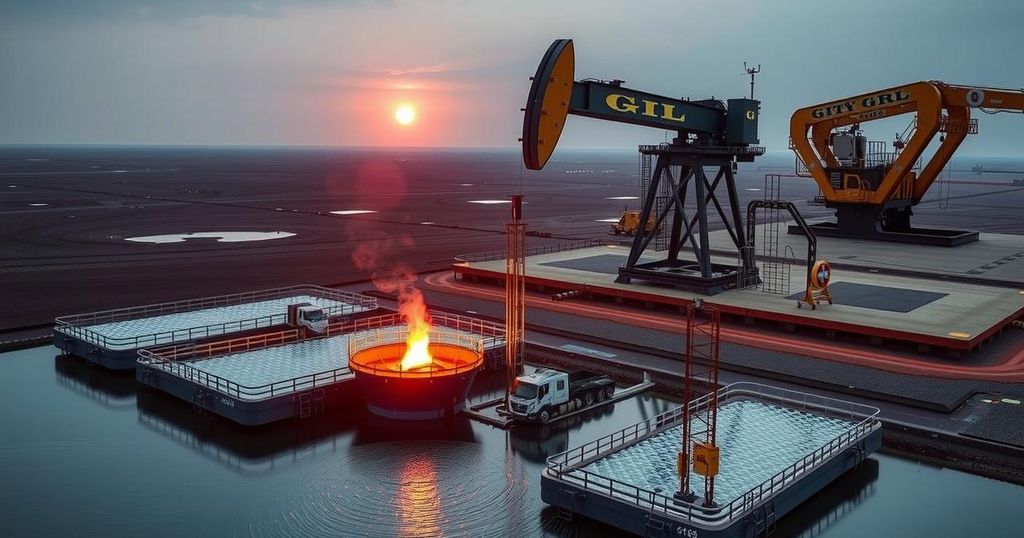South Sudan plans to resume oil production on December 30, 2024, after pipeline disruptions caused by fighting in Sudan impacted its economy. The Petroleum Authority has requested plans for resumption from Dar Petroleum Operating Company, but unresolved issues remain. The nation continues to face challenges despite its oil wealth, including instability and poverty.
South Sudan has announced plans to recommence oil production, with hopes of exporting crude oil after the disruption of a crucial pipeline caused by recent conflicts in neighboring Sudan. The country, which heavily relies on oil exports via Port Sudan, saw its economy severely affected after the pipeline damage earlier this year during clashes between the Sudanese army and the Rapid Support Forces. According to Kon John Akot, director general of the Petroleum Authority, production activities in blocks three and seven are scheduled to restart on December 30, 2024, as detailed in a letter dated December 19.
The letter sent to the president of Dar Petroleum Operating Company (DPOC) outlines the need for the company to provide its plans for resuming production as swiftly as possible. However, a communication from DPOC dated December 23 indicated that several issues must be resolved before production can commence, emphasizing the necessity for “further discussions” to finalize a kick-off date. South Sudan, which hosts approximately 12 million residents, gained control of about 75% of the former Sudan’s oil reserves upon its independence in 2011 and previously managed to produce over 150,000 barrels of oil daily. Despite these resources, the nation continues to experience considerable challenges, including tribal conflict, persistent instability, extreme poverty, and recent cholera outbreaks, exacerbated by the influx of those displaced by violence in Sudan.
South Sudan, having declared its independence from Sudan in 2011, is a landlocked nation rich in oil reserves but grapples with a struggling economy and socio-political challenges. Prior to the pipeline disruption, the country relied on transporting its crude oil through Sudan to the Red Sea. The damage caused by the violence this year has led to economic repercussions, emphasizing the importance of oil production to the country’s financial health. The government’s announcements and the need for continued negotiations with oil companies highlight the complexities of resuming a stable production process in the context of ongoing instability.
In summary, South Sudan’s intention to resume oil production emphasizes its dependency on petroleum exports for economic stability. While plans have been set for production to restart by the end of December 2024, the successful implementation of these plans hinges on resolving outstanding issues with oil production companies. This situation exemplifies the broader struggles faced by South Sudan in managing its rich resources amidst ongoing challenges.
Original Source: www.barrons.com






